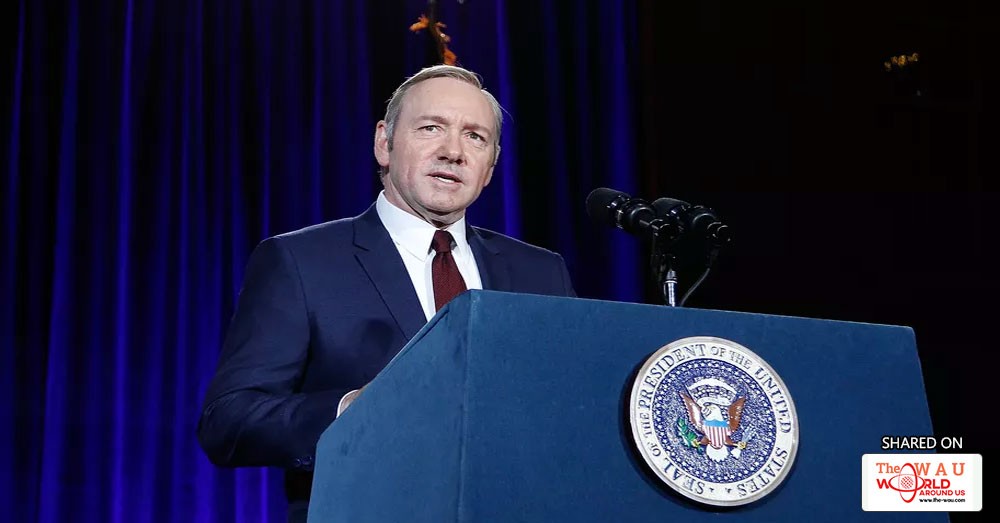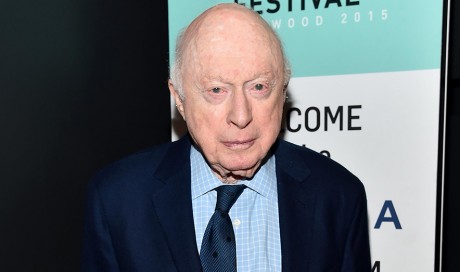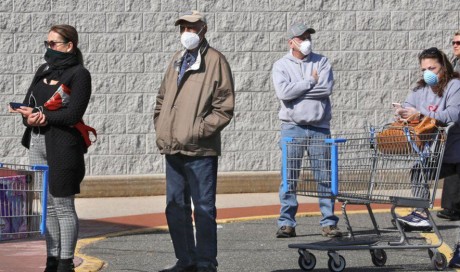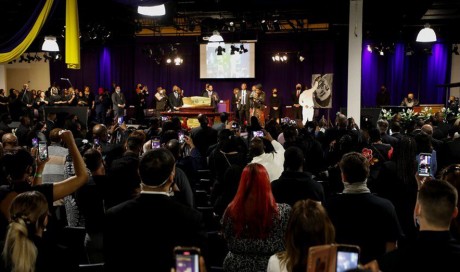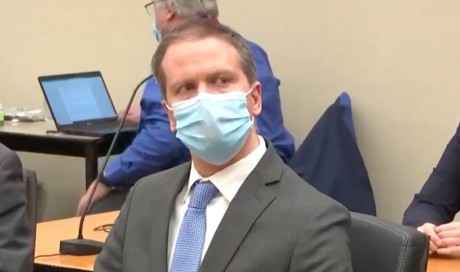The New York Times published its exposé on Harvey Weinstein on October 5, and in the not-quite six weeks since its publication, long-buried bombs have been exploding throughout the entertainment industry, often in unpredictable fashion. Some of the industry’s biggest “open secrets” are now out in the wide open, and there’s a palpable sense that even more will come to light before the cycle has run its course.
This series of stories has left the sense, in many minds, that Hollywood is rife with sexual harassment (true) and that it is unique among industries in that regard (not true). If you pull back from just the Hollywood stories, sexual harassment and assault scandals have been roiling multiple industries since last year, when Roger Ailes was pushed out of his position at Fox News, after word of his frequent harassment of women employees came to light.
Or, honestly, you could go back even further. We have been having forms of this conversation — in some cases more openly than others — since Anita Hill brought the term “sexual harassment” into the mainstream with her testimony against Supreme Court Justice Clarence Thomas in 1991. Politics, media, academia, finance — all have been hit by at least one major sexual harassment scandal in recent memory.
Really, then, what’s so unique about this recent spate of Hollywood stories is how long it took them to come to light. Weinstein’s actions — as with the behavior of Kevin Spacey, Louis C.K., and others — were long known via the rumor mill, and many industry reporters were at least aware of the whispers, if not their veracity. But there often seemed to be an impregnable wall around the entertainment industry, and it was constructed as much out of “This is just how things are done” as it was legally binding NDAs.
So what made Hollywood harassment so prevalent for so long? And why will it be so hard to curtail even now? Here are three big reasons.
1) The idea that any behavior is acceptable in the pursuit of great art (or great commerce)
/cdn.vox-cdn.com/uploads/chorus_asset/file/9553767/WEINSTEIN_HITCHKOCK_copy.jpg)
Of the three factors I’m going to write about here, this is perhaps the most easily solved. (I wrote much more about the toxicity of this idea here.) Really, all it would take is an industrywide insistence that certain kinds of behavior are not tolerated under any circumstances on film or television sets.
And in theory, such a code of conduct exists — it’s just easier to ignore if what everybody’s making is expected to become something incredible or (even more so) something that will prop up the studio’s bottom line for the rest of the year.
For instance, imagine that the next superhero tentpole movie coming out is being directed by a real asshole. Maybe he’s not even a sexual harasser, just somebody who treats everybody on set like the scum of the earth and thus creates a poisonous work environment, where his underlings might start to think, “Well, if he can get away with that, what can I get away with?”
The studio isn’t going to risk damaging the performance of its big hit movie in the name of promoting a safer workplace environment. A tentpole film could replace its director and still hit its planned release date (the upcoming Han Solo movie looks to do just that), but it’s rarely a great idea. Most likely, the studio would end up with an expensive mess on its hands.
Hollywood still runs primarily on money, and if it can’t make lots of money, it will make up for that in prestige. After all, Oscar winners go down in the history books. That’s been enough to ensure Woody Allen and Roman Polanski have had more than healthy careers, even after enduring massive scandals (and an actual criminal conviction for raping a 13-year-old in Polanski’s case). And as is readily apparent in any industry, once you become willing to sacrifice anything in the name of greed for money or prestige, lots of other values fly out the window.
2) In Hollywood, firing one person can lead to firing everybody
/cdn.vox-cdn.com/uploads/chorus_asset/file/9651329/GettyImages_137109307.jpg)
This problem is unique to Hollywood. If, say, a sports star (the closest cultural analogue to a major movie star) is revealed to be a serial killer and subsequently sent to prison, the team continues to exist. It might have several down seasons without its star, but it won’t go away. Everybody else employed by the team continues to cash their paychecks. The same goes for a CEO of a Fortune 500 company or even the president. The company, or the country, will continue to exist without either.
That’s not really true of a major movie or, especially, a major TV show. Case in point: the attempts by Media Rights Capital and Netflix to figure out how to proceed with House of Cards without Kevin Spacey. Spacey is that show. He’s what all of the publicity and awards campaigns have centered on, and most of the show’s famous moments center on him. Yes, other characters (especially Claire, played by Robin Wright) have grown in prominence since the show began, but House of Cards is built around Spacey in a way most antihero dramas are built around their central bad boys.
So the solution isn’t simply “fire Kevin Spacey,” because doing so essentially tears apart the series’ reason to exist. In the case of House of Cards, I suspect the series will eventually pivot to be about Claire instead, but that’s only possible because it’s had five seasons to build Claire into a character worthy of taking over the show. What if Spacey’s misdeeds had come to light during production of season one or two?
The solution also isn’t as simple as “cancel House of Cards” because the show employs hundreds of people who are reliant on the series for their next paycheck. Yes, cancellation is common in the television industry, and everybody on a TV set is conscious that they might have to find new work in a year’s time. But when a show is picked up for a season — as House of Cards was for a sixth — everybody involved makes a commitment not to find other work in order to remain committed to House of Cards. If the show suddenly goes away, they’re immediately scrambling to fill in the monetary gap.
The irony is that for a rich movie star like Kevin Spacey, the gap in paychecks will ultimately be a blip. Even if he never works again, he’ll likely live comfortably. But for a low-level PA, or a key grip, or a camera operator, that money may be necessary just to keep going. The vast majority of Hollywood technicians live at a middle-class or lower level, and they count on the steady work to keep things going during the lean times.
So if Spacey is House of Cards, and if he needs to be punished for unacceptable behavior, then it’s easier for everybody involved on the set of House of Cards to just pretend that unacceptable behavior doesn’t exist — even if they’re the victims of it. Thus, whenever any one star or director or showrunner becomes so powerful that they’re essentially irreplaceable, the danger is they are given a blank check to behave as badly as they want.
And there’s no simple or easy solution to this. Imagine if FX’s Louie had still been in production when Louis C.K.’s horrible behavior came to light. He was that show’s writer, director, and star, which would have made FX’s choice to cut ties with him more complicated not just because of him, but because of all of the people he employed. Simply paying all of those people for a season of television that will never exist would amount to a hefty, hefty loss. That loss would extend to the neighborhood of tens of millions for something like House of Cards, and even in that case, doing something like recasting the lead role would seem very strange. (It’s rumored that series will kill off Spacey’s character.)
Just think about this: Out there somewhere is a House of Cards fan who pays no attention to the news. When the show comes back and Spacey isn’t in it, what are they going to think: “Boy, Kevin Spacey must have done something bad,” or, “Wow, Netflix just ruined House of Cards”? That they’ll most easily leap to the latter is why Hollywood continues to coddle bad behavior of all sorts from its biggest names.
3) The entertainment industry requires environments that foster intimacy — and make lines easier to cross
/cdn.vox-cdn.com/uploads/chorus_asset/file/9695941/GettyImages_138425601.jpg)
If I were to offer the most charitable reading I could of the argument that making great art requires certain socially unacceptable behaviors, it would be that creative environments need a certain amount of intimacy that would be inappropriate in most workplaces. This is true throughout the TV and film industries, but it’s most true when it comes to TV writers’ rooms and among ensemble casts.
Writing a season of television might require staff members opening up about their deepest, darkest secrets, from sexual experiences to embarrassing adolescent encounters to fights with family members. This kind of fodder might create terrific television, grounded in real, emotional human experiences. But it also fosters an environment where a serial predator can cross lines more easily (and less obviously) than he would in a more traditional workplace environment.
What’s frustrating is that the line between a safe and productive writers’ room and one that’s toxic and hurtful can be hard to spot, and sometimes only well after the line has been crossed. Moreover, the California Supreme Court (in the landmark Friends writers’ room lawsuit) has held that writers’ rooms have a wide latitude to discuss these sorts of topics, sometimes in ways that might make individual writers uncomfortable, as a part of making television.
A good showrunner, of course, will make sure the chemistry in a room doesn’t spill over from intimate but productive to toxic, but even the best showrunners can’t be in the room 100 percent of the time it’s up and running, something that’s especially true on broadcast network shows that air 18 to 22 episodes per season. This may explain why many of the most wrenching tales of serial harassment to emerge in the wake of the Weinstein scandal have been shared by women working as junior writers in writers’ rooms.
The same is true of ensemble casts on stage, screen, and TV. These casts have to develop an emotional intimacy really quickly, especially if they’re meant to portray siblings, or parents and children, or lovers, or spouses. And even in a production that doesn’t hinge on these sorts of relationships, developing a kind of sixth sense for what your costars are going to do as quickly as possible is often essential to creating an ensemble that gels, as opposed to one that audiences just don’t buy.
And if you’re a more junior actor, someone who’s just rising up the ranks, it’s that much easier for more senior stars to exploit that situation. The faux-intimacy necessary to craft a believable performance is very easy to manipulate and exploit for those with the requisite levels of power to do so.
This is not to say that Hollywood should find ways to cut back on the necessary intimacy of the writers’ room or the ensemble cast. But the industry does need to have better systems for reporting harassment quickly and early on, before it reaches a level where an entire production rests on the shoulders of one person, who then might abuse that power to do evil things.
Film and TV sets can be fun, sometimes magical places — but they’re also workplaces, even if they play by slightly different rules than other workplaces. It’s important to remember that they, too, should be safe, productive environments, where people are allowed to do their best work.
Share This Post

